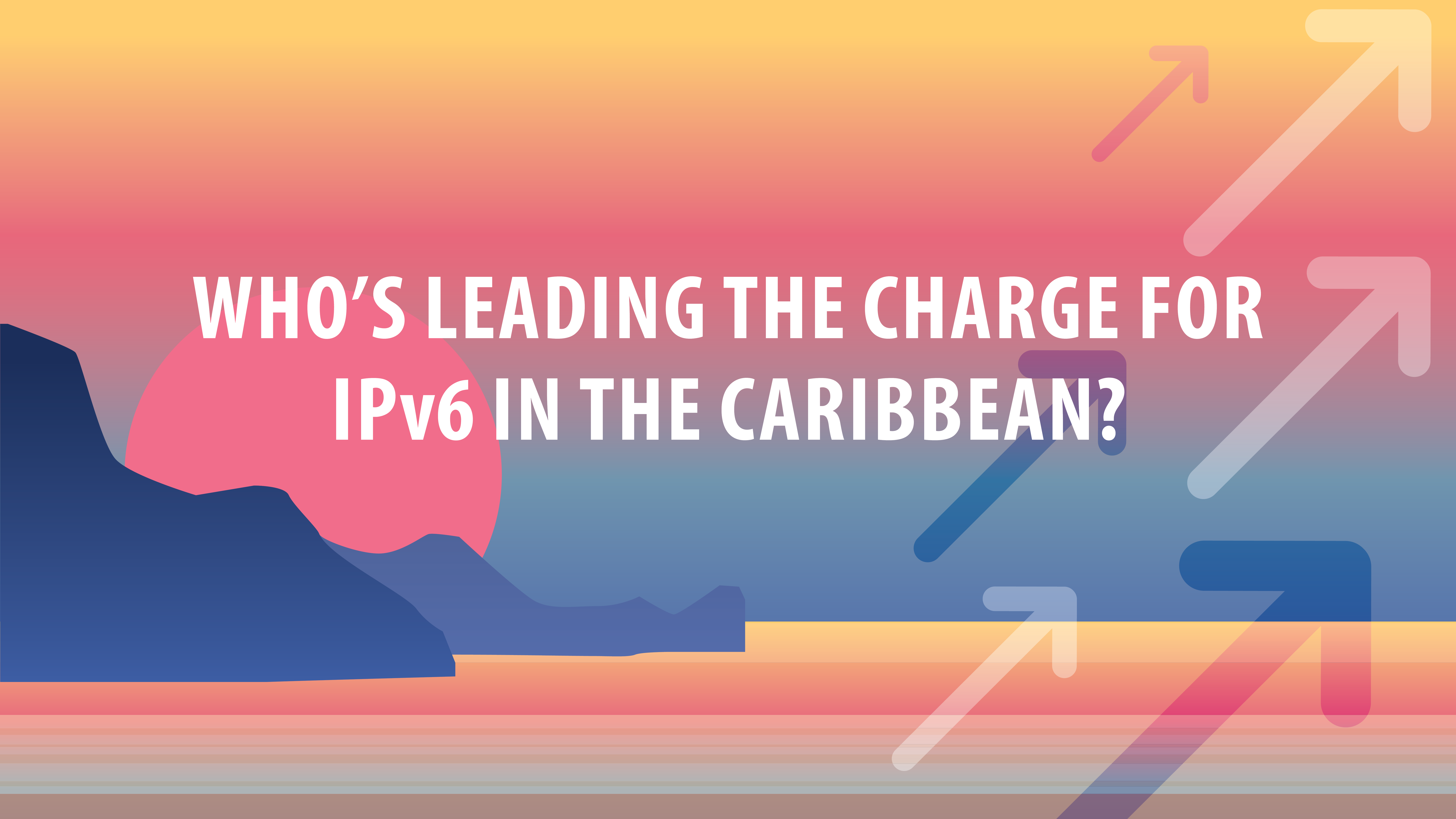
Who’s Leading the Charge for IPv6 in the Caribbean?
Internet growth depends on IPv6, and the Caribbean islands and organizations within the ARIN and LACNIC regions have unique characteristics and challenges when it comes to achieving that growth. While they have already achieved a good level of IPv6 allocation and assignment penetration — it does not need to reach 100% to be considered success — new deployments are more essential than ever. IPv6 is no longer an option but a necessity. Customers want access to the entire Internet, and this means access to both IPv4- and IPv6-enabled websites.
In the IPv6 Success Stories panel at the ARIN 51 Public Policy and Members Meeting in April 2023, Brent Mc Intosh, Chief Technology Officer of MCNET-SOLUTIONS and IPv6 expert, highlighted the challenge faced in the Caribbean of getting Internet Service Providers (ISPs) to provide not just transit IPv6 but also Internet access over IPv6 infrastructure. He provided a valuable example of the latter by presenting a case study of Cable Bahamas’ IPv6 deployment. View the slides from Brent’s presentation for a more detailed look at the Cable Bahamas success story and learn more about Brent’s experience in the case study “Enabling Internet Access Services Over IPv6 in the Caribbean.”
About 41 percent of global Internet traffic is over IPv6, but the average amount of IPv6 traffic in the countries and geographic areas of the Caribbean is significantly lower: 11.6%*. As part of its commitment to supporting Internet development in the Caribbean, ARIN plays a vital role in raising that percentage by encouraging and enabling IPv6 education and adoption in the region. Plus, requesting an IPv6 block from ARIN is a simple process, and ARIN’s Number Resource Policy Manual (NRPM) section 4.10 provides for a dedicated block of IPv4 to facilitate IPv6 deployment.
If you’re ready to start your IPv6 journey or need support at any point along the way, you can take advantage of ARIN’s free online guide to IPv6. This resource presents practical insights, strategies, and instructions to help you understand, prepare for, request, and implement IPv6.
IPv6 Caribbean Leaderboard
| Rank | Country/Geographic Area | IPv6 Traffic* capable |
|---|---|---|
| 1 | Saint Barthelemy | 70.47% |
| 2 | Puerto Rico | 44.05% |
| 3 | Montserrat | 43.22% |
| 4 | Trinidad and Tobago | 23.61% |
| 5 | Sint Maarten | 23.05% |
| 6 | Saint Martin | 22.13% |
| 7 | Suriname | 19.37% |
| 8 | Guadeloupe | 18.74% |
| 9 | Guyana | 13.61% |
| 10 | Jamaica | 11.16% |
| 11 | British Virgin Islands | 10.89% |
| 12 | Saint Lucia | 10.63% |
| 13 | Martinique | 9.48% |
| 14 | French Guiana | 9.30% |
| 15 | St. Vincent and the Grenadines | 8.10% |
| 16 | Belize | 6.15% |
| 17 | Grenada | 3.64% |
| 18 | Dominican Republic | 2.81% |
| 19 | US Virgin Islands | 1.61% |
| 20 | Curacao | 1.48% |
| 21 | Turks and Caicos Islands | 1.03% |
| 22 | Antigua & Barbuda | 0.94% |
| 23 | Bahamas | 0.89% |
| 24 | Aruba | 0.79% |
| 25 | Cayman Islands | 0.68% |
| 26 | Anguilla | 0.62% |
| 27 | St. Kitts & Nevis | 0.43% |
| 28 | Cuba | 0.40% |
| 29 | Barbados | 0.35% |
| 30 | Haiti | 0.20% |
| 31 | Dominica | 0.19% |
*This data is the average of IPv6 traffic data from Akamai, APNIC, CloudFlare, Google, and Meta (Facebook). Depending on the measurement source, it may or may not report IPv6 traffic for a given country, so ARIN’s rankings are based on an average of the sources that do report. Data as of February 2023.
Recent blogs categorized under: Caribbean
GET THE LATEST!
Sign up to receive the latest news about ARIN and the most pressing issues facing the Internet community.
SIGN ME UP →Blog Categories
Caribbean • IPv6 • ARIN Bits • Tips • Updates • Elections • Outreach • Security • RPKI • Public Policy • Guest Post • Grant Program • Fellowship Program • Data Accuracy • Business Case for IPv6 • Internet Governance • Training • IPv4 • Customer Feedback • IRR



